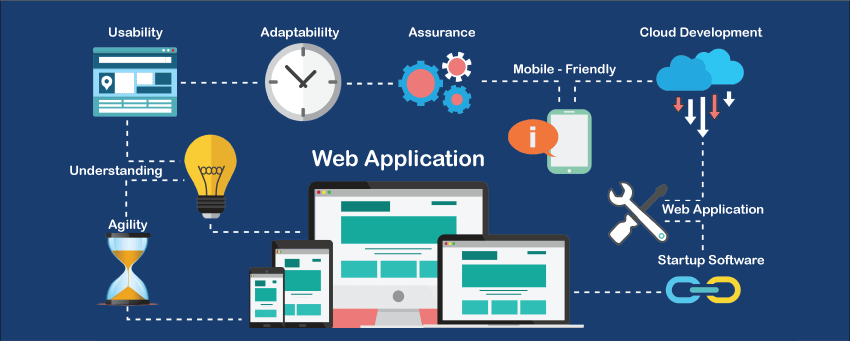Top 10 Web Application Scripts You Can’t Ignore
Web application scripts can save time, streamline development, and add powerful features to your website. Whether you’re building an e-commerce platform, a blog, or a custom business solution, these scripts can help you achieve your goals efficiently. Here are 10 must-have web application scripts for developers and businesses:
1. WordPress
- Category: CMS (Content Management System)
- Why You Need It:
- Powers over 40% of websites globally.
- User-friendly and highly customizable with plugins and themes.
- Perfect for blogs, business sites, and e-commerce.
- Best Features: SEO tools, responsive themes, and a massive plugin library.
2. Laravel
- Category: PHP Framework
- Why You Need It:
- Simplifies web application development with built-in authentication, routing, and caching.
- Supports MVC architecture for clean, scalable code.
- Best Features: Artisan CLI, Eloquent ORM, and Blade templating engine.
3. Magento (Adobe Commerce)
- Category: E-Commerce Platform
- Why You Need It:
- A robust solution for building scalable online stores.
- Offers extensive customization and integration options.
- Best Features: Advanced inventory management, SEO tools, and multi-store support.
4. ChatGPT API
- Category: AI/Chatbot Integration
- Why You Need It:
- Add conversational AI to your website for customer support or content generation.
- Enhance user experience with intelligent, context-aware responses.
- Best Features: Natural language understanding and multi-language support.
5. OpenCart
- Category: E-Commerce Script
- Why You Need It:
- A lightweight, easy-to-use platform for small to medium-sized businesses.
- Free and open-source with a variety of plugins.
- Best Features: Multi-language support, integrated payment gateways, and customizable themes.
6. WHMCS
- Category: Billing and Automation
- Why You Need It:
- Designed for hosting providers and SaaS businesses.
- Automates billing, domain management, and customer support.
- Best Features: Seamless integration with hosting platforms and payment gateways.
7. CodeIgniter
- Category: PHP Framework
- Why You Need It:
- Lightweight and fast framework for building dynamic web apps.
- Great for projects with limited resources.
- Best Features: Easy configuration, built-in security, and simple database management.
8. WooCommerce
- Category: E-Commerce Plugin for WordPress
- Why You Need It:
- Transforms WordPress sites into fully functional online stores.
- Ideal for small to medium-sized businesses.
- Best Features: Flexible payment options, customizable storefront, and shipping integrations.
9. React.js
- Category: JavaScript Library
- Why You Need It:
- Build interactive and dynamic user interfaces for web apps.
- Reusable components make development faster and more efficient.
- Best Features: Virtual DOM, JSX syntax, and strong community support.
10. phpMyAdmin
- Category: Database Management
- Why You Need It:
- Manage MySQL and MariaDB databases via a web interface.
- Essential for developers working with database-driven applications.
- Best Features: User-friendly interface, import/export tools, and query execution.
Bonus Scripts to Consider
- Django (Python Framework): Ideal for building secure, scalable web apps quickly.
- Stripe API: Add secure and seamless payment processing to your website.
- TinyMCE: A powerful WYSIWYG editor for blogs and content management.
- Google Maps API: Integrate location-based services and maps into your app.
Conclusion
These web application scripts offer powerful tools for building feature-rich, efficient, and scalable websites or web applications. Whether you’re creating an e-commerce store, a content platform, or a custom solution, these scripts can significantly boost your productivity and results.






